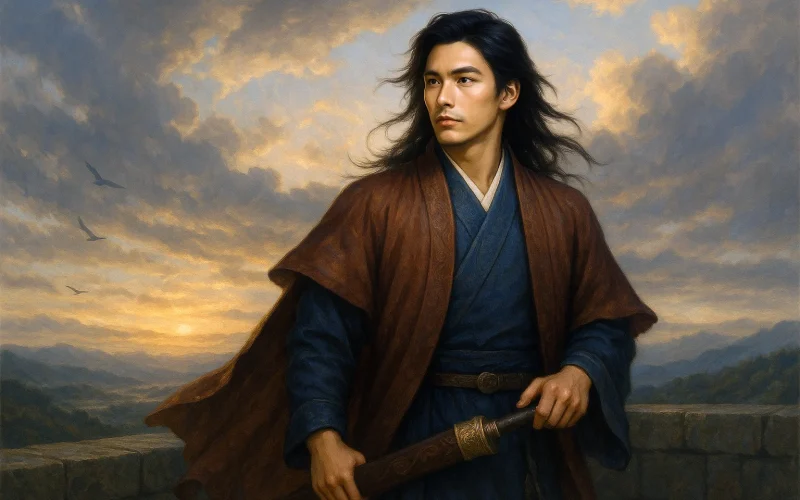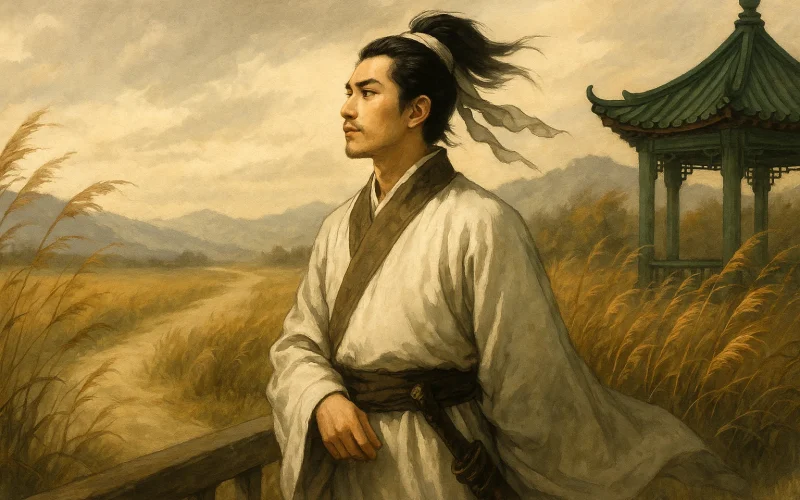Chen Ziang (c. 661–702), an eminent early Tang Dynasty literati and poet from Yangzhou (present-day Jiangsu Province), stands as one of the pioneering figures in Tang literary reform. Renowned for his moral integrity and impassioned writings, he became a leading representative of literary innovation during the early Tang period.
Major Works
Life Overview
Born into an intellectual family, Chen received exceptional classical education from childhood. Despite modest means, his extraordinary literary talent emerged early. After repeated failures in imperial examinations during youth, he persevered through diligent study, gradually gaining literary prominence. Though achieving official position around age thirty as county magistrate before rising to important posts like Imperial Censor and Vice Minister of Rites, his uncompromising principles led to frequent conflicts with corrupt officials, resulting in a turbulent political career. Disillusioned in later years amid political setbacks, Chen passed away at about forty in 702. Despite career frustrations, his poetic legacy and transformative impact on Tang literature endure.
Poetic Style
Characterized as "heroic and thunderous, embracing mountains and rivers," Chen's poetry prioritizes emotional authenticity through unadorned yet distinctive language. His works profoundly connect human spirit with historical context, reflecting both philosophical depth and acute political awareness through vigorous, direct expression.
- Heroic Passion
Chen's verse transcends personal sentiment to embody indomitable spirit, often pulsating with historical urgency and political fervor. Rejecting ornate emptiness, he championed literary "moral courage" (气节) and "intellectual backbone" (骨气), advocating truthful expression. - Historical Consciousness
Many poems engage historical events and figures, embedding profound social and cyclical historical philosophy. His works frequently adopt a "time waits for no one" urgency, examining contemporary challenges through historical lenses. - Form-Content Synthesis
Mastering concise forms to convey grand themes, Chen could sketch vast historical backdrops or emotional turbulence with minimal strokes, achieving remarkable density and expressive power.
Literary Achievement & Influence
As a trailblazer of Tang literary reform, Chen's significance extends beyond technical mastery to his doctrine of literature's social responsibility. Advocating "writing to convey truth" (文以载道), he redirected literature toward genuine thought and emotion, countering rhetorical excess.
A pivotal figure in early Tang transformation, his direct, vigorous style broke from traditional ornamentation, influencing subsequent creative directions. His impact on Tang poetics is particularly evident in the emergence of the "Four Early Tang Masters" (including Wang Bo, Yang Jiong, Lu Zhaolin, and himself), demonstrating literature's need to reflect contemporary thought beyond rigid conventions.
Chen's legacy profoundly shaped later poets like Li Bai and Du Fu—visible in Li's elevated perspectives and Du's social-historical consciousness. His integration of personal aspiration with historical vision established enduring creative paradigms.
Chen Ziang emerges as early Tang's most distinctive poet of moral courage. His heroic, emotionally authentic style, charged with historical consciousness and self-expression, transcends personal lyricism to engage history, politics and society. As both literary innovator and unyielding spirit, Chen occupies a pivotal position in Chinese literary history, exerting far-reaching influence on Tang poetry's development and subsequent literary tradition.











